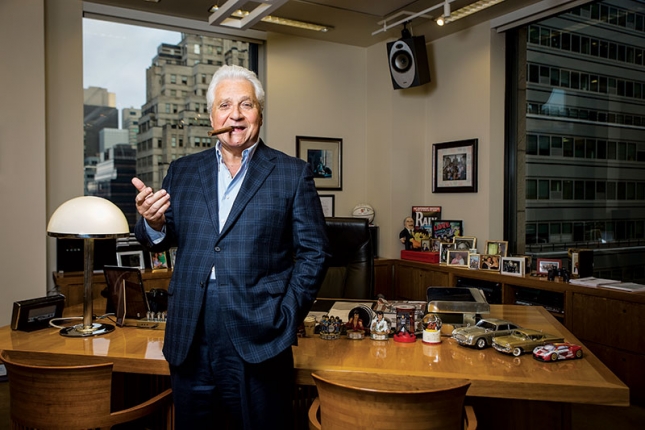In a letter to Sony/ATV Music Publishing songwriters, chairman/CEO Martin Bandier warns that songwriters’ incomes may be negatively impacted by changes being contemplated by Dept. of Justice’s continuing review of the consent decrees by which collection societies ASCAP and BMI operate.
The major publishing companies requested that the DoJ review the 75-year-old consent decrees in an attempt to secure the right to withdraw digital rights from blanket licenses, but remain with ASCAP and BMI for all other performance licensing. The DoJ’s review became necessary in the wake of both ASCAP and BMI’s rate court judges having ruled that partial withdrawals of digital rights were not allowed under the consent decree; publishers either had to be all-in or all-out.
While the DoJ appeared to be initially considering granting that wish, “this process has taken an unexpected turn in recent weeks that, if not addressed, could have a significant impact on your earnings as well as restrict how you work creatively,” writes Bandier in his letter to songwriters.
As reported first by Billboard, “the DoJ is considering requiring ASCAP and BMI to engage in what is called 100% licensing,” the letter states, in which any writer or rights holder can issue a license for 100 percent of a song.
Bandier issued the letter urging songwriters to attend a “Songwriter Town Hall” being held by the National Music Publishers Assn. tomorrow (Sept. 9). The purpose of the meeting is to update songwriters on the changes that are currently being considered by the DoJ.
While the law states that each stakeholder in a song has the right to license the entire song without seeking the permission of other stakeholders, industry practice has been that each stakeholder would only license their portion of the song, according to music publishing executives. But some music licensees, i.e., radio and certain digital music services, have never acknowledged this industry practice and have long maintained that all they need is the license from one of the songs rights owners.
If the DoJ comes down in favor of the stance favored by music licensees, Bandier warns “a streaming service could bypass you and your PRO and go to your collaborator’s PRO to obtain a license for the entire song without your consent.” If that happens, writers would then be subject to that PRO’s rate, even if it is lower than their own PRO’s rate, he concludes. Moreover, Bandier wonders how a songwriter would receive payment, if that songwriter has no relationship with the other PRO.
“This would substantially disrupt the well-established practice of licensees entering into agreements with each PRO representing whatever piece of a song they control and create significant accounting inefficiencies as PROs would have to pay royalties to songwriters not affiliated with them,” writes Bandier.
Once that starts happening, songwriters might reconsider who they collaborate with, he suggested.
“Requiring PROs to grant 100% licenses would be an unprecedented change to well-established licensing practices create widespread administrative confusion and potentially undermine a songwriter’s relationship with his or her chosen PRO,” Bandier concludes.


